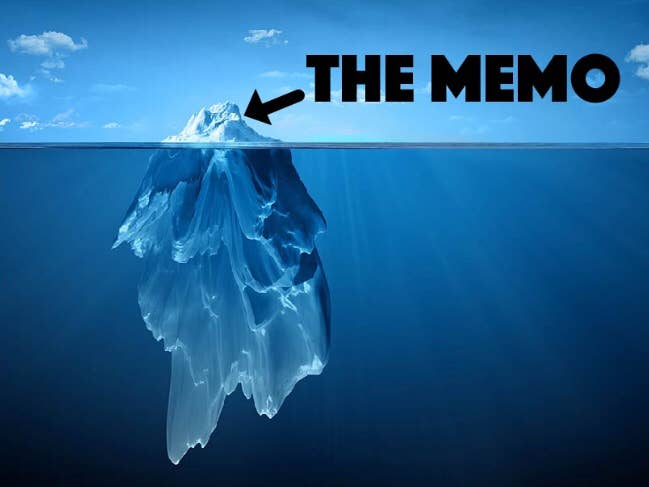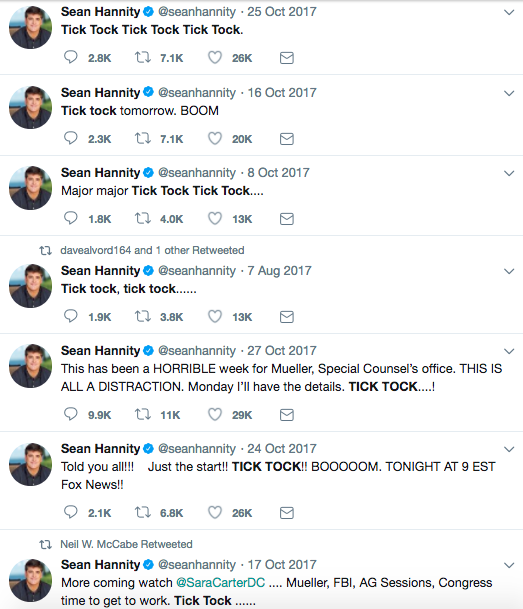
For the last two weeks a secret — now released — memo from California Rep. Devin Nunes’s office has torn apart lawmakers and dominated the political news cycle. Those on the right advocating for its release have touted the four-page document as an unprecedented example of government corruption and malfeasance exceeding that of even the Watergate revelations.
But for those who’ve paid close attention to the pro-Trump media industrial complex over the last 18 months, the memo, and its attendant media circus, felt familiar. The breathless coverage, relentless tweets, and continual teases building up to what is hopefully a grand reveal was reminiscent of a tactic honed and perfected not by whistleblowers, but by partisan shock jocks. Indeed, the saga of #ReleaseTheMemo felt a lot less like the Pentagon Papers than it did a classic Alex Jones or Sean Hannity conspiracy gambit to hijack a news cycle.
Much like Jones or Hannity, Nunes successfully weaponized the pro-Trump media and its online viral outrage machine, ultimately forcing the country to obsess and speculate over a largely political document. But while the congressman’s tactics to release classified information feel cribbed from the pro-Trump media playbook, Nunes appears to have made a crucial mistake: actually releasing the memo.
There are easy parallels between the Nunes memo and last year’s Alex Jones/Megyn Kelly interview debacle, in which the Infowars host commandeered an effort to sandbag him on network TV and transformed it into a news-dominating Alex Jones spectacle. In the weeks leading up to the interview's air date, Jones repeatedly hinted that he had some contentious bit of information about it. Then, roughly 72 hours before air, he revealed it: surreptitiously recorded audio of Kelly offering to humanize and soften him in a preinterview.
Exclusive Sneak Peek @RealAlexJones @megynkelly The Interview! Full Interview to be released tonight on… https://t.co/VS3gwwa0db
Eventually, Infowars published roughly 10 minutes of Kelly’s preinterview. The footage was far from the bombshell Jones had touted; it was little more than an embarrassing interview negotiation. But Jones continued to tease it. He said he had eight more hours of shocking audio that he planned to release in the days ahead. But he never did. The Kelly interview aired the following Sunday; the controversy subsided. And Jones moved on to the next outrage.
The endless tease is a tactic Jones has perfected in recent years. But he’s not the only member of the pro-Trump media to use it. Sean Hannity is another master of the form.
Online, Hannity has become infamous for his innumerable “tick tock” teases. He claims he knows something “major” and will soon reveal it to the world. But promised revelations rarely live up to the hype.

But the ploy does draw eyeballs and ratings. Last May, Hannity — after weeks of propagating a conspiracy theory surrounding the unsolved murder of DNC staffer Seth Rich — took to Twitter to announce what sounded like a break in the case. He promised a “huge announcement” on his program. That evening, millions tuned in to hear it. The broadcast had a 50% increase in viewership, according to Nielsen. But there was no explosive announcement. Instead, Hannity delivered the polar opposite: a meandering monologue saying he would no longer talk about the story on the air.
Huge announcement tonight about Seth Rich, Trump/Russian Collusion corrupt media, the liberal effort to silence me. And my future at Fox!
Little wonder then that Hannity and Jones have been among the most vocal proponents of releasing Nunes’s memo; the memo-release strategy seems ripped right from their pro-Trump media playbook (it’s worth noting that Hannity reportedly advised the president on his decision to release the document, though he denies doing so).
First, it tosses bold allegations into the realm of public opinion without full evidence or context. In the memo’s case, the document’s classified nature prevented its particulars from being discussed. But lawmakers were free to tease the vague contours and that was more than enough to convince Trump loyalists of wholesale corruption. Second, the memo saga built suspense with each day as reluctant government officials were forced to comment on or refute its importance. By the end of the multiweek campaign, the memo had become the biggest story in Washington.
But Nunes’ payoff was meager. Coverage of the memo — which hit a fever pitch this week when the FBI cautioned against releasing it — began to deflate as soon as it became clear that it would indeed be published. On Thursday evening, there was a “rising White House fear” that the “Nunes memo is a dud.” Indeed, its declassification Friday afternoon was arguably the least exciting day of the entire saga. And while its contents were relentlessly examined, their revelations hardly matched the breathless hype of the past few weeks. Once public, the more explosive claims in the document appeared hard to corroborate without access to the underlying evidence supporting them, none of which was released or declassified. On top of that, there's also a looming counter memo, written by Democrats, which has also not been released.
Perhaps that’s because the Nunes memo departed from the pro-Trump media playbook in an crucial way — the reveal. After weeks of coverage, protest, and hand wringing, the #ReleaseTheMemo campaign had accomplished what it set out to do: push forward a narrative of corruption and anti-Trump bias. Without divulging classified information, Trump loyalists portrayed themselves and the administration as victims: They easily muddied the waters between fact, fiction, and partially true (and partially not!).
Had the memo never been released, it may well have driven the news cycle for weeks more — hanging like a cloud over the Trump-Russia investigation — indisputable proof of something, just out of reach. Now that it’s out, it’s been defanged and its news value sapped. It will soon be subsumed by the next controversy.
Nunes used the pro-Trump media playbook well until he didn't, veering away from a key tenet: The tease and build-up aren’t just the appetizer, they're the entire meal. As with the Seth Rich revelations or the Kelly tapes, a conspiracy just out of reach — one that’s metastasizing in the imagination of its target audience — is often more powerful than one revealed.
